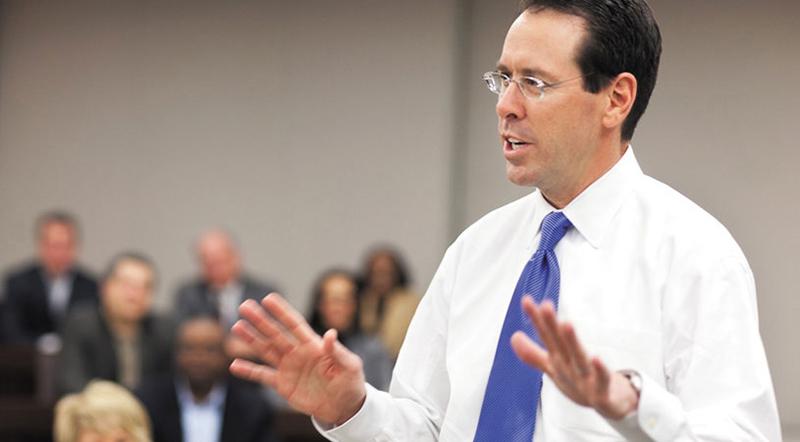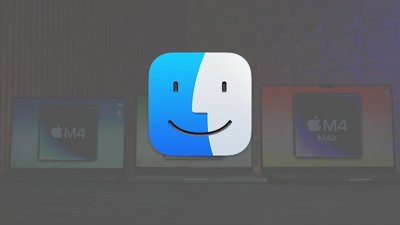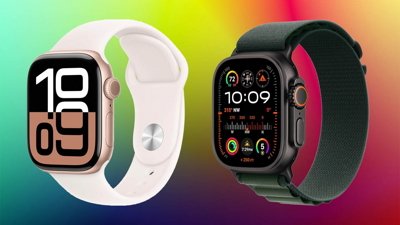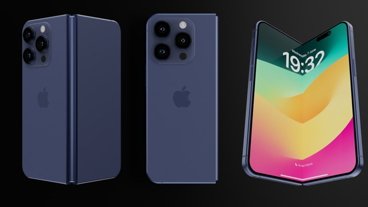At the Milken Institute’s Global Conference on Wednesday, Stephenson expressed his discontent over AT&T's decision to to offer unlimited data plans when the first iPhone was launched in 2007, reports The New York Times.
“My only regret was how we introduced pricing in the beginning, because how did we introduce pricing? Thirty dollars and you get all you can eat," Stephenson said. "“And it’s a variable cost model. Every additional megabyte you use in this network, I have to invest capital.â€
Stephenson, who took the reigns as CEO in the same year Apple's iPhone debuted as an AT&T-exclusive device, alluded that profits would have been healthier if the company opted for a different pricing model. AT&T ended unlimited data for the iPhone in 2010 and moved to a tiered model that helped the carrier reach $6.1 billion in revenue last quarter from data users alone.
It should be noted that customers who signed up for the original unlimited data plans were grandfathered in after the tiered pricing model was established. The opportunity came with the caveat that a user is not allowed to flip-flop between plans, that is they can't downgrade to tiered plan and move back up to unlimited. In March, AT&T instituted further restrictions to remaining all-you-can-eat data customers, however, and announced that it would be throttling data speeds when a user passes a 3GB threshold.
AT&T CEO Randall Stephenson. | Source: AT&T
In addition to unlimited data concerns, Stephenson said that he is worried about other data-centric services taking over current AT&T offerings.
“You lie awake at night worrying about what is that which will disrupt your business model,†Stephenson said. “Apple iMessage is a classic example. If you’re using iMessage, you’re not using one of our messaging services, right? That’s disruptive to our messaging revenue stream.â€
Instead of using a subscription-based SMS, which is basically free for carriers to operate as texts are transmitted through radio network's control channel, iMessage let's iOS users send messages using wireless data. Apple launched the service alongside iOS 5 in 2011. The wireless market has seen an increase in text packaging as evidenced by AT&T's move to one $20 per month unlimited messaging option, though it remains unclear if the change was in direct response to data-based solutions.
Stephenson also cited VoIP solution Skype as another threat, this time to his company's voice plans.
Despite his consternation, the CEO ultimately revealed that he doesn't regret supporting the iPhone which accounted for 78 percent of AT&T's smartphone activations in the first quarter of 2012.
During the interview Stephenson discussed the initial conversations Apple co-founder Steve Jobs had with Cingular Wireless, which later became AT&T, over the proposed iPhone. He said that the board was worried the device would cause a shift in the carrier's business model.
“I remember asking the question: Are we investing in a business model, are we investing in a product or are we investing in Steve Jobs?†Stephenson said. “The answer to the question was, you’re investing in Steve Jobs. Let’s go after this thing. And we went after it, and the rest is history.â€
 Mikey Campbell
Mikey Campbell







-m.jpg)






 Amber Neely
Amber Neely
 Christine McKee
Christine McKee
 Malcolm Owen
Malcolm Owen

 William Gallagher
William Gallagher
 Chip Loder
Chip Loder
 Brian Patterson
Brian Patterson

-m.jpg)






125 Comments
1. Your texts cost you $0.00.000000000000000000000000000000000000000000000000000000000000000 to send. You charge us $20 for a couple hundred. Screw you.
2. Yeah, unlimited data was a mistake; you're either too stupid or too inept to build out your network properly to meet the demand of modern society. Look at Japan. They're proof that it's possible and you're lying.
[quote name="Tallest Skil" url="/t/149872/at-t-ceo-bemoans-iphone-unlimited-data-imessage#post_2105345"]1. Your texts cost you $0.00.000000000000000000000000000000000000000000000000000000000000000 to send. You charge us $20 for a couple hundred. Screw you. 2. Yeah, unlimited data was a mistake; you're either too stupid or too inept to build out your network properly to meet the demand of modern society. Look at Japan. They're proof that it's possible and you're lying. [/quote] Completely agree with you text messaging plans have been a robery for years. Now they want to do the same on data apps. I hope congress makes data caps ileagal on wired and wireless networks. Charge for the speed but no caps, theinternetis a utility...
Completely agree, but you can't really compare Japan's size and population to the whole United States. It's much easier in Japan.
Wonder how AT&T's bottom line would have been over the past 5 years without the iPhone. IIRC they were getting throttled by Verizon, and customer satisfaction was in the toilet.
1. Your texts cost you $0.00.000000000000000000000000000000000000000000000000000000000000000 to send. You charge us $20 for a couple hundred. Screw you.
2. Yeah, unlimited data was a mistake; you're either too stupid or too inept to build out your network properly to meet the demand of modern society. Look at Japan. They're proof that it's possible and you're lying.
Have a heart. Stephenson can't afford to pay his domestic help for a second-shift because you're cheating AT&T on profits with abusive data use. Now if he wants a midnight snack, he has to go downstairs and fix it himself. I guess they're used to stacking the deck against their customers.